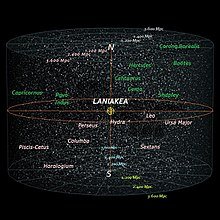Do You Really Want to Know the Truth?

Originally posted Dec 24, 2015:
“You shall know the truth, and the truth shall set you free.”
Do you really want to know the truth?
I heard a disturbing interview on NPR the other day. Apparently a critic from the Washington Post, Caitlin Dewey, wrote a column for The Washington Post called "What Was Fake On The Internet This Week?" for 82 weeks, but now was ending the column. The reason? Ari Shapiro asks. Fake news has evolved into an industry, complete with ad revenue and a fake-news generating factory (my words, not hers).
The tactic of debunking fake news doesn’t work anymore. The trend, Dewey says, is increasingly that partisan views are being broadcast as “news” and feeding confirmation biases to the media consumer. You believe what you want to hear. Debunking it, especially if the debunker is perceived to be from the opposing camp, actually causes the consumer to believe it more. So in other words, people are coming up with lies, people “buy” them, and really don’t want to to get their money back for a phantom product, because they believe it to be proof of their worldview.
Do you really want to know the truth?
The March 2015 volume of the National Geographic is titled, The War on Science. In the feature article, this phenomenon of people digging in their heels further when confronted with a finding that doesn’t fit their current beliefs is cited as one reason simply educating people doesn’t help change behavior. Try showing parents with immunization phobias the latest literature on the public health risks of skipping immunizations and it won’t make them run out and immunize their babies. Try telling people the glaciers are melting and it won’t stop them from lobbying for big oil corporations so we can have cheap gas to drive our cars around. Try telling people that GMOs aren’t harmful to your health and they won’t stop shopping for GMO-free food. These are just a few examples of issues cited in the article.
It’s about our beliefs being tied up in our identity - and wanting to fit into the rest of the community who holds our set of beliefs with us. It’s uncomfortable being confronted with the question, “Who’s side are you on, anyway?” if, for reasons your peers can’t fathom, you changed your belief based on information belonging to the opposing faction. It means we aren’t fully “them” or fully “us” anymore. It means our beliefs have expanded to include possibilities we previously would have shunned.
Do you really want to know the truth?
So what are we to do? We may say we want the truth, but what sacrifices are you willing to make to get it? Are you willing to lose your current identity? Are you willing to accept ideas that previously you would have relegated to the opposing “them” camp? Are you willing to be neither “us” nor “them,” but simply a Truth Seeker, no matter how much it messes with your current worldview?
Do you really want to know the truth?
You may honestly not want to know. Here’s the thing about truth. Contrary to those manufactured news stories, what is true is not often easy to accept. It doesn’t always “fit.” It causes more questions, not more surety that you’re right. It leaves you very much aware of your limitations of understanding, not satisfied that you’ve figured it all out.
So ask yourself honestly:
Do you really want to know the truth?
Congratulations @circleseeker! You have completed some achievement on Steemit and have been rewarded with new badge(s) :
Click on any badge to view your Board of Honor.
To support your work, I also upvoted your post!
For more information about SteemitBoard, click here
If you no longer want to receive notifications, reply to this comment with the word
STOPDo not miss the last announcement from @steemitboard!